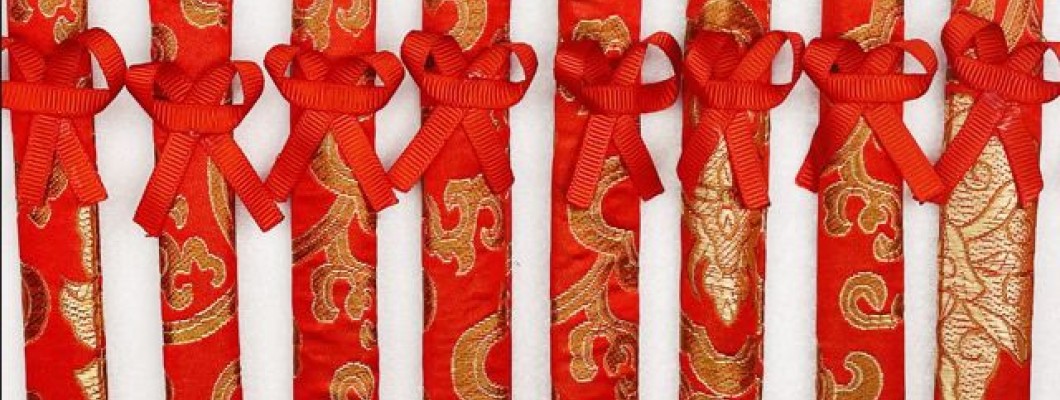
mascots in weddings
Gift chopsticks are used as mascots in weddings and are used in various wedding ceremonies. "Dongjing Menghua Lu" records: "The woman's family gave them two bottles of fresh water, three to five live fish, and a pair of chopsticks in a Yuan wine bottle, which was called 'fish chopsticks.' Since the Song Dynasty, the saying "fish chopsticks" has been spread According to the custom of "chopsticks", after the man gives the woman a gift, the woman should use "fish" and chopsticks as a gift in return.
Chopsticks are essential tableware for Chinese people to eat every day, representing the special eating habits of Chinese people. In wedding customs, wedding chopsticks are also mascots that wish for marriage and children, happiness, and peace. In wedding customs, chopsticks have become a symbol of people. A pair of chopsticks represents a person. Adding a pair of chopsticks means adding another person. Chopsticks are a homophonic pronunciation of "kuaizi", which gives Qiaozhu gift Chopsticks the meaning of "quickly giving birth to children"
Among some ethnic minorities, chopsticks are used as a symbol of engagement. Among the Gelao people, it is a custom for men to give chopsticks to propose marriage. After a young Gelao man and woman fall in love, the man will propose marriage to the woman's parents. When proposing for marriage, the man will not say a word. He only needs to take out a pair of chopsticks wrapped in red paper from his arms, hold them with both hands and place them respectfully in the main room of the woman's family. on the Eight Immortals table, and then left. When the girl's parents see this, they will know that it is a marriage proposal, and they will decide whether to agree to the marriage based on the situation.
In Guangxi's Bama Yao Autonomous County and Du'an Yao Autonomous County, when young men and women mature in love, they must hold a chopstick-drawing engagement ceremony. At that time, the parents of both parties will send a famous singer to meet, and they will use chopsticks to recite the engagement words and discuss the wedding matters. The male singer is called "cloth merchant" and the female singer is called "yeba", both of which are played by strong men. The ceremony was held at the woman's home. An Eight Immortals table is placed outside the gate. On the table are a wine jar, two wine glasses, and a bamboo tube with chopsticks. "Yeba" stood at the table, waiting for the "cloth merchant". The "cloth merchant" leads the congratulatory couple to the bride's house. Both parties bow and salute, and then the "ye handle" holds the bamboo tube and shakes it rhythmically, reciting the engagement words while shaking it. After reciting a paragraph, he took out a chopstick from the bamboo tube and placed it in front of the "cloth merchant". The "cloth merchant" then recited the answer. After reciting a part of the answer, he picked up the chopsticks and put them in his hands. In this way, the "yeba" chopsticks in the bamboo tube are continuously transferred to the hands of the "cloth merchant". Until all the chopsticks in the bamboo tube are turned, the two parties pick up the wine glasses and toast each other to celebrate the success of the engagement.
A small pair of chopsticks contains rich ancient Chinese culture. It is still customary in some Han weddings in the north to tie the chopsticks and green onions together with red thread and send them from the bride's natal family to her husband's family on the wedding day. Chopsticks are still an integral part of weddings.






Leave a Comment